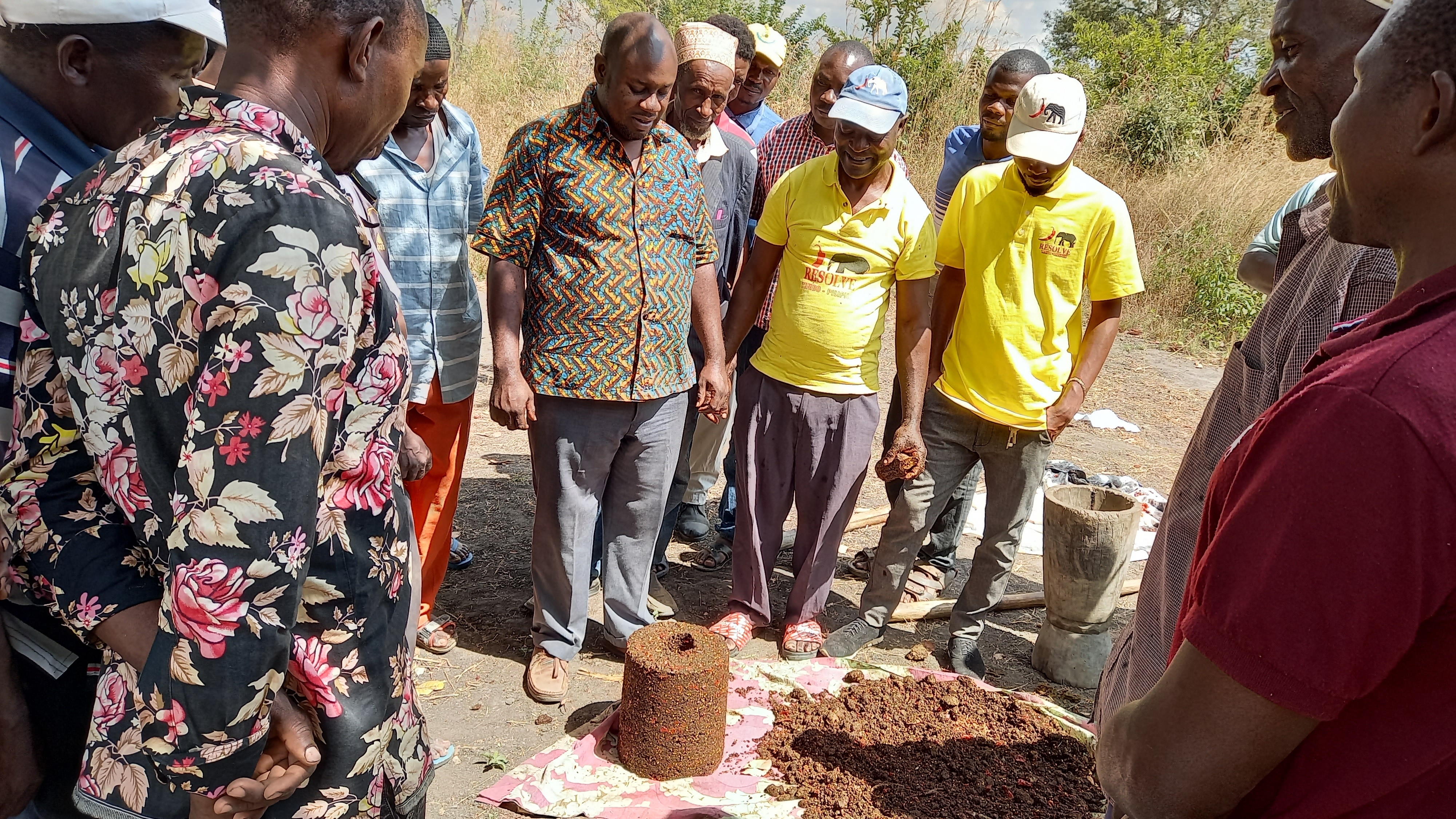
In Tanzania, human-elephant conflict is particularly intense in expanding agricultural zones along park borders. Crop-raiding elephants affect livelihoods, reduce food security for local farmers, and cause human injuries or fatalities, which sometimes result in retaliatory killings of elephants. The Tembo-Pilipili project (“elephant-chili” in Swahili) aims to ensure that farmers living in close proximity to protected areas in Tanzania sustainably mitigate human-elephant conflict. This is accomplished by implementing chili fences and other low-cost strategies, while organizing farmers into community cooperatives to fund mitigations and create new economic opportunities. Chili fences are built using a combination of recycled motor oil and chili powder that elephants, with their highly sensitive trunks, dislike.
RESOLVE works with communities to protect small-holder farms and livelihoods, create new economic opportunities, and save elephants. RESOLVE designed a program in Tanzania to provide initial training on chili fence construction and maintenance, establish farmer teams and community-based organizations (CBOs) to organize efforts, and promote the benefits of wildlife conservation. Thus far, RESOLVE and our partners have established project sites in five key elephant landscapes in Tanzania, trained 1,900 farmers in actively using chili fences to protect fields from human-elephant conflict, and helped form sixty-five CBOs.